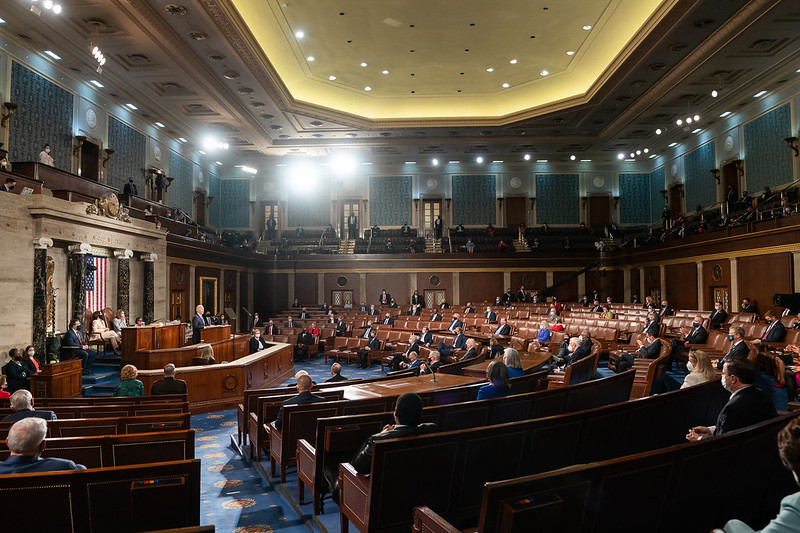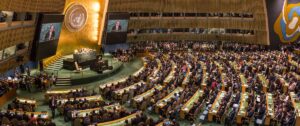The Biden Administration has made an important and symbolic step towards restoring U.S. standing in the world through its FY 2022 budget request that proposes to meet U.S. obligations to the United Nations. In the budget request to the U.S. Congress, the Administration sought to fund fully U.S. assessments to the UN and to start addressing arrears owed for UN peacekeeping, where the U.S. has accumulated the most sizeable debt – at over $1 billion – of any member state. While falling short of a full payoff of all U.S. peacekeeping arrears, the Administration’s budget demonstrates a genuine commitment to tackle the outstanding debt within a defined timeframe. The request sends an important and significant signal to the UN Secretariat and other UN member states that Washington is determined to resume its place as a constructive force within the multilateral system. It also underscores the Administration’s intention to counter the growing clout of other nations, notably China, that have capitalized on the U.S. leadership vacuum over the past four years. Now it is time for Congress to appropriate the necessary funds – and embrace the opportunity to start restoring U.S. leadership.
Reversing Debt
The United States has a complex and convoluted process for paying its share of the UN peacekeeping budget. The United States’ share is 27.89 percent, which it is obligated to pay under international law, making the US the single largest financial contributor to the United Nations. U.S. funding is vital to the financial resiliency of UN peacekeeping operations and to implementing U.S. foreign policy priorities.
In 1994, Congress imposed a unilateral 25 percent limit on these payments out of concern that the U.S. was paying a disproportionate share of the peacekeeping budget. That limit remains in place today. Yet for most of the last 27 years, both Republican and Democratic Administrations found alternative ways to make up the gap in funding to maintain American leadership in UN peacekeeping activities.
However, the Trump Administration opposed payments or credits of any kind that would exceed the 25 percent limit. As a result, the United States debt to the UN for peacekeeping grew by over $200 million in each year of that Administration, constraining many aspects of UN peacekeeping and delaying critical payments to troop-contributing countries. These countries primarily include less-developed nations that are dependent on the reimbursements for their peacekeepers and have limited capacity, especially in the Covid era, to cushion the resulting financial hardship.
Increasing U.S. Standing
In her January 27, 2021 confirmation hearing, U.S. Ambassador to the UN Linda Thomas Greenfield envisioned how these unpaid peacekeeping bills would hamper her ability to advance U.S. foreign policy goals and reassert U.S. influence at the UN, saying “[n]ot paying our bills really does diminish our power and it diminishes our leadership. We need to pay our bills to have a seat at the table.” She added, “[w]e know that when we cede our leadership, others jump in very quickly to fill the void and we need to make sure that we are there to push back on those who would have malign intentions at the United Nations.” President Biden and Secretary of State Anthony Blinken have signalled that they are looking to the UN as a key tool to leverage U.S. foreign policy goals, but that will require as a first step for the U.S. to meet its financial obligations to the world body.
FY 2022 Budget Request to Congress
The Administration’s FY 2022 budget request concretely reflects this commitment. Prior to the May 28 full budget request to Congress, Acting OMB Director Shalanda Young wrote in an April 6 letter to Congressional appropriators: “Global leadership includes meeting the Nation’s commitments to international peacekeeping and paying dues on time and in full.” The Administration request seeks appropriations of almost $2 billion to support current UN peacekeeping requirements as well as a $300 million down payment on the arrears of more than $1 billion. The request covers nearly $1.7 billion to pay the fully assessed 27.89 percent rate, which could be broken down between $1.46 billion to fulfill the statutory 25 percent limit and an additional estimated $172 million to meet the full U.S. obligations to the UN). The letter reiterates the Administration’s intention and commitment ‘of fully funding peacekeeping arrears payments within two years.”
Gaining Traction
Critics who worry about excessive and ineffective UN spending push the notion of the United States demanding that other UN member states agree to a 25-percent cap on peacekeeping assessments, and further reforms in peacekeeping expenditures as the price for the U.S. to pay off its $1 billion in arrears. This calculation mirrors the situation facing the UN in the late 1990s, when the U.S. was also holding back on over $1 billion (a much more significant amount in those days of smaller UN budgets) of regular budget payments. The debate resulted in the Helms-Biden Act, which conditioned a payoff of the arrears on the U.S. negotiating with other nations a 22-percent assessment cap on the UN regular budget and an (subsequently mistaken) expectation that the peacekeeping share would fall below 25 percent.
However, world has changed. Since then, the U.S. position and global reputation has substantially shifted – and the last four years have amply demonstrated that the futile attempt of financial coercion at the UN and elsewhere is counterproductive to achieving U.S. goals on the world stage. The U.S. has a treaty obligation to pay its assessed share of the UN budget, and only after it has met its financial commitments will other UN member states consider collaborating on further peacekeeping reforms and considering a possible peacekeeping cap.
This year will be an important juncture in UN finances as a phased U.S. commitment to pay UN peacekeeping arrears will be followed, in the autumn of 2021, by the next three-year UN scales of assessment negotiations. The preliminary Scales calculations due in June could result in a decrease in the U.S. share of assessments, bringing it closer to the magic 25 percent level pursued since the 1990s by some in Congress. The Biden Administration will need to chart a course framing a long-term and sustainable approach to financing UN peacekeeping that reinforces committed U.S. leadership while staying mindful of the long-standing concerns by some in Congress about a disproportionate U.S. financial responsibility.




